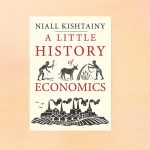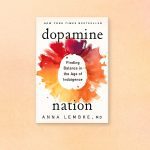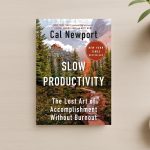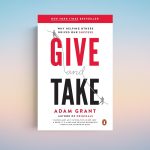Time is life’s most finite resource, yet many of us constantly feel like there’s never enough of it. The right book can change that. This curated list of the Top 10 Books about Time Management drawn from Amazon and New York Times bestsellers blends proven productivity systems, motivational strategies, and philosophical perspectives on how we use our hours. From Cal Newport’s focus‑cultivating methods to Oliver Burkeman’s reflections on life’s brevity, these selections offer both practical tools and mindset shifts. Whether you’re seeking better work‑life balance, career acceleration, or simply more freedom, each title here will help you master your most precious asset, time.
Top 10 Books about Time Management
1. Buy Back Your Time – Dan Martell
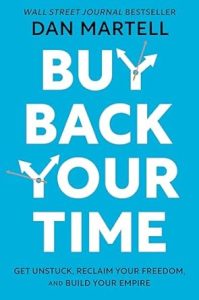
Dan Martell flips traditional hustle culture on its head by advocating for strategic delegation. Rather than trying to grind through endless tasks, Martell teaches entrepreneurs and busy professionals to “buy back” their time-freeing hours for higher‑value work and a richer personal life. The book blends actionable tools with personal stories of business recovery and lifestyle transformation. Readers learn how to price their time, identify tasks to outsource, and overcome the mental barriers to letting go of control. Martell’s approach is part mindset shift, part operations manual, and part pep talk for reclaiming freedom without sacrificing ambition. The focus is on designing a life where work supports your ideal lifestyle rather than consuming it.
2. Deep Work: Rules for Focused Success in a Distracted World – Cal Newport
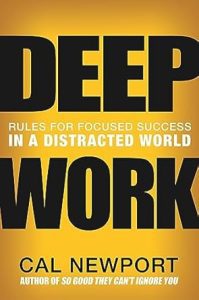
Cal Newport’s now‑classic productivity manifesto focuses on cultivating “deep work”-periods of distraction‑free concentration that allow you to produce your best, most valuable output. Drawing on research in neuroscience and psychology, Newport contrasts deep work with the shallow multitasking that dominates modern work culture. He offers practical schedules, rituals, and isolation techniques to train your focus like a muscle. With compelling examples from scientists, authors, and entrepreneurs, Newport argues that deep work is a superpower increasingly rare in the age of social media and constant notifications. The payoff, he insists, is both professional excellence and personal satisfaction.
3. The 5AM Club – Robin Sharma
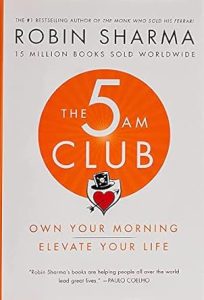
Robin Sharma presents an almost mythic formula for transforming your productivity and well‑being: rise at 5AM, use the first hour for targeted personal development, and set the tone for a peak‑performance day. Through a parable‑style narrative, Sharma weaves together philosophy, neuroscience, and tactical routines such as the “20/20/20 Formula” (20 minutes movement, 20 minutes reflection, 20 minutes learning). The emphasis isn’t just discipline-it’s on designing mornings that amplify energy, focus, and creativity.
+ Book Summary of The 5AM Club by Robin Sharma
4. Four Thousand Weeks: Time Management for Mortals – Oliver Burkeman
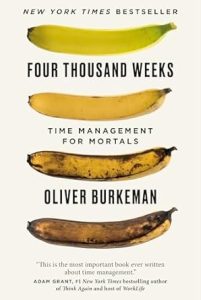
Burkeman takes a philosophical look at productivity by flipping the premise: with only about 4,000 weeks in the average life, we can’t “do it all.” Instead, he urges us to accept limitations, prioritize meaning, and embrace the finite nature of time. Drawing inspiration from existential psychology, mindfulness, and centuries of philosophical thought, Burkeman offers strategies for choosing what matters over what’s urgent, letting go of perfectionism, and finding joy in the present.
5. Slow Productivity – Cal Newport
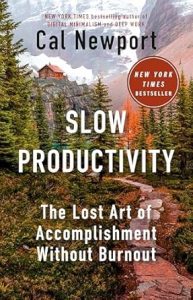
In this newest work, Newport advances the idea of “slow productivity”-creating sustainable output over decades rather than grinding through unsustainable sprints. He argues for pacing oneself, focusing on fewer but higher‑impact goals, and resisting urgency culture. Through historical case studies and contemporary examples, Newport offers a vision of work that’s both ambitious and humane.
6. Get It Done: Surprising Lessons from the Science of Motivation – Ayelet Fishbach
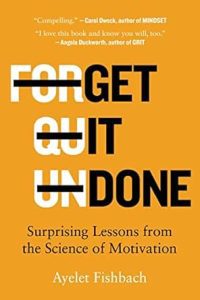
Social psychologist Ayelet Fishbach blends decades of research on motivation, goal‑setting, and persistence into a practical framework for achieving long‑term objectives. She explains how to overcome procrastination, design motivating milestones, and navigate inevitable setbacks-backed by experiments from behavioral science.
7. Getting Things Done: The Art of Stress‑Free Productivity – David Allen
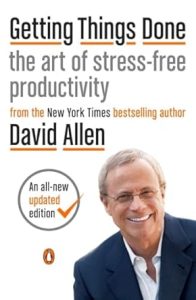
David Allen’s GTD method has become synonymous with organized, high‑clarity work. The system involves capturing all tasks into an external trusted system, processing them into actionable next steps, and regularly reviewing priorities. By offloading mental clutter, GTD promises stress reduction and sharper focus.
8. 168 Hours: You Have More Time Than You Think – Laura Vanderkam
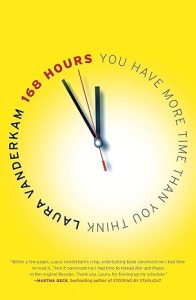
Vanderkam challenges the notion of “too busy” by showing how we can repurpose underused hours toward meaningful work and relationships. She uses time‑tracking studies and personal stories to help readers reframe priorities, cut waste, and make intentional choices.
9. Essentialism: The Disciplined Pursuit of Less – Greg McKeown
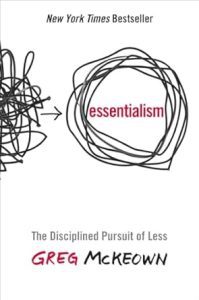
McKeown champions doing less, better. He teaches how to eliminate the trivial many in favor of the vital few, empowering readers to simplify decision‑making and focus on what truly matters-without guilt.
+ Book Summary of Essentialism by Greg McKeown
10. Eat That Frog!: 21 Great Ways to Stop Procrastinating and Get More Done in Less Time – Brian Tracy
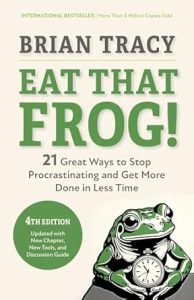
Tracy offers a simple but powerful metaphor: tackle your hardest, most important task first (“eat the frog”), then watch your productivity skyrocket. He includes 21 actionable strategies for overcoming procrastination and building momentum daily.
Engage with Us: What Are Your Favorite Books?







